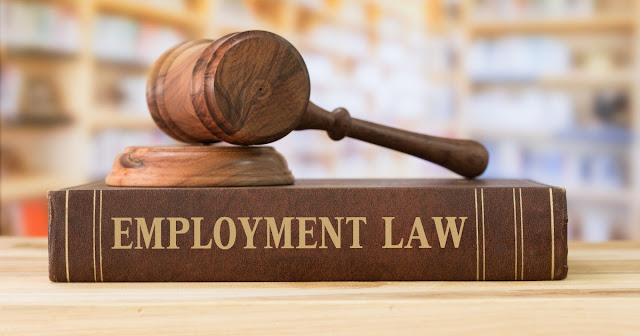Welcome to our blog, where we explore the role of employment lawyers and how they can assist individuals and businesses in navigating the complex landscape of employment law. Whether you're an employee facing workplace issues or an employer seeking legal guidance, an employment lawyer is your advocate and expert resource. In this article, we'll delve into the key responsibilities and benefits of hiring an Employment Lawyer Auckland, and why they play a vital role in ensuring fair and compliant employment practices. So let's dive in and discover how an employment lawyer can help you protect your rights and interests in the workplace.

Understanding Employment Law
Before we explore the role of an employment lawyer, let's first understand what employment law encompasses:
Employment law is a vast and complex field that governs the legal relationship between employers and employees. It ensures that both parties are treated fairly and have access to certain rights and protections. Here are the key aspects of employment law:
Employee Rights
Employment law is designed to safeguard the rights of employees and provide them with a fair and conducive working environment. Some of the fundamental rights protected by employment law include:
- Fair wages: Employment law ensures that employees are paid fair wages for their work. It sets standards for minimum wage rates, overtime pay, and other forms of compensation.
- Safe working conditions: Employers have a legal obligation to provide a safe and healthy work environment for their employees. Employment law establishes guidelines and regulations to ensure workplace safety and prevent hazards.
- Protection against discrimination: Employment law prohibits discrimination in the workplace based on factors such as race, gender, age, disability, religion, or national origin. It ensures that employees are treated fairly and without bias.
- Right to privacy: Employees have the right to privacy in certain aspects of their employment. Employment law protects employees from unreasonable intrusion into their personal lives and provides guidelines for employee monitoring and data protection.
- Protection against harassment: Workplace harassment, including sexual harassment, is strictly prohibited by employment law. It sets guidelines for identifying and addressing harassment complaints, ensuring a safe and respectful work environment for all employees.
Employer Obligations
Employment law also outlines the responsibilities and obligations of employers. These obligations include:
- Safe work environment: Employers must provide a safe and healthy workplace for their employees. They are required to comply with safety regulations, conduct risk assessments, provide appropriate training, and maintain a hazard-free environment.
- Compliance with minimum wage and overtime regulations: Employment law sets minimum wage standards and establishes rules for overtime pay. Employers must adhere to these regulations and ensure that employees receive the wages they are entitled to.
- Prevention of workplace discrimination and harassment: Employers have a legal duty to prevent workplace discrimination and harassment. They must establish policies and procedures to address and prevent discriminatory practices and create a culture of inclusivity and respect.
- Termination and severance requirements: Employment law provides guidelines for fair and lawful termination of employment. It outlines the procedures and requirements for termination, including notice periods, severance pay, and employee rights upon termination.
Legal Disputes
Despite efforts to create a fair and harmonious work environment, conflicts and disputes can still arise between employers and employees. Employment law covers various legal disputes, including:
- Wrongful termination: If an employee believes they have been unjustly terminated, employment law allows them to pursue legal action. An employment lawyer can assess the circumstances, gather evidence, and advocate for the employee's rights.
- Workplace discrimination and harassment: Employment law protects employees from discrimination and harassment in the workplace. If an employee experiences such treatment, they can seek legal remedies to address the issue.
- Breach of contract: Employment contracts are legally binding agreements between employers and employees. If either party fails to fulfill their contractual obligations, employment law provides recourse for resolving disputes and seeking appropriate remedies.
- Wage disputes: Employment law addresses wage-related issues, such as unpaid wages, unauthorized deductions, wage theft, and improper wage classifications. Employees can seek legal assistance to ensure they receive their rightful compensation.
- Employment-related injuries and compensation: If an employee suffers an injury or illness in the workplace, employment law governs the process of seeking compensation, including workers' compensation claims and benefits.
Resolving these legal disputes often requires the expertise of an employment lawyer who specializes in employment law and can navigate the complexities of the legal system to protect the rights and interests of their clients.
By understanding the scope of employment law, both employers and employees can better comprehend their rights, obligations, and available legal remedies in various employment-related situations.
The Role of an Employment Lawyer
An employment lawyer specializes in employment law matters, representing either employees or employers. Here's how they can assist:
Employee Representation
- Legal advice: An employment lawyer provides legal guidance and advice to employees on their rights, entitlements, and options in various employment-related situations.
- Contract review: They review employment contracts, non-disclosure agreements, non-compete agreements, and other legal documents to ensure that the terms are fair and in compliance with the law.
- Discrimination and harassment: An employment lawyer helps employees who have experienced workplace discrimination or harassment by investigating the claims, gathering evidence, and pursuing legal action if necessary.
- Wrongful termination: If an employee believes they were wrongfully terminated, an employment lawyer can assess the circumstances, determine if their rights were violated, and pursue legal remedies on their behalf.
- Wage and hour disputes: Employment lawyers assist employees in cases involving unpaid wages, unpaid overtime, improper classification, or other wage-related violations.
- Negotiations: In situations such as severance agreements or contract negotiations, an employment lawyer can advocate for the employee's interests, ensuring fair and favorable terms.
Employer Guidance
- Legal compliance: Employment lawyers advise employers on complying with employment laws and regulations to avoid legal pitfalls and potential lawsuits.
- Policy development: They assist employers in developing employment policies and procedures that are in line with current laws and best practices, ensuring a fair and inclusive work environment.
- Contract drafting: Employment lawyers help employers draft employment contracts, non-disclosure agreements, non-compete agreements, and other legal documents to protect their interests and maintain compliance.
- Dispute resolution: In the event of employee disputes or legal claims, an employment lawyer can represent the employer, assess the situation, and provide guidance on the best course of action.
- Litigation defense: If an employer is facing a legal claim, an employment lawyer will defend their interests, represent them in court if necessary, and work towards a favorable resolution.
Benefits of Hiring an Employment Lawyer
Whether you're an employee or an employer, engaging the services of an employment lawyer offers several key benefits:
- Expert knowledge: Employment lawyers have in-depth knowledge of employment laws, regulations, and legal procedures. They stay updated with any changes or updates in the law and can provide accurate and current advice.
- Legal protection: An employment lawyer helps protect your rights and interests by ensuring compliance with employment laws, advocating for your rights, and offering strategic advice.
- Fair representation: By hiring an employment lawyer, you have a dedicated advocate who will represent your best interests, whether it's negotiating a fair settlement, pursuing a legal claim, or defending against false accusations.
- Prevention and risk management: Employment lawyers assist in implementing preventive measures to minimize the risk of legal disputes. They can review policies, contracts, and procedures to ensure compliance and reduce the likelihood of costly legal issues.
- Efficient resolution: In the case of disputes, an employment lawyer can help expedite the resolution process through negotiation, mediation, or litigation, depending on the situation.
Conclusion
Employment lawyers play a crucial role in safeguarding the rights and interests of both employees and employers. Whether you're facing workplace discrimination, harassment, wrongful termination, or need legal guidance as an employer, Employment Lawyer Auckland can provide the expertise and support you need.
They navigate the complexities of employment law, provide legal advice, and advocate for your rights to ensure fair and compliant practices in the workplace. By engaging the services of an employment lawyer, you can protect yourself, your business, and your employees, and achieve a balanced and respectful work environment.
Source From: Navigating Employment Matters: The Role Of An Employment Lawyer

 Log in with Facebook
Log in with Facebook 









